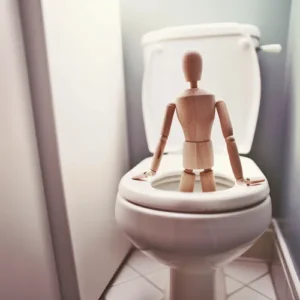Cholesterol is a waxy, fat-like substance that is found in all of the body’s cells. Many people think of cholesterol as being inherently bad. However, the truth is that cholesterol plays an important role in the body and is produced naturally by the liver. The problem arises when you have too much of the wrong type of cholesterol accumulating in the bloodstream.
The Two Main Types of Cholesterol
There are two main types of lipoproteins that carry cholesterol throughout the body:
- Low-Density Lipoprotein (LDL): Also referred to as “bad” cholesterol, LDL contributes to a buildup of cholesterol in your artery walls. High LDL levels increase your risk of heart disease and stroke.
- High-Density Lipoprotein (HDL): Often called “good” cholesterol, HDL transports cholesterol from all over your body back to your liver so it can be removed from your body. Higher levels of HDL can lower your risk of heart disease and stroke.
What Causes High Cholesterol?
For most people, high cholesterol stems from lifestyle factors like diet and exercise:
- Eating foods high in saturated fat, such as red meat, full-fat dairy products, and fried foods, encourages your liver to produce more cholesterol than needed.
- Not exercising enough fails to burn excess cholesterol.
- Being overweight puts you at higher risk for high LDL levels.
- Smoking almost doubles your risk of heart attack compared to non-smokers.
In some cases, high cholesterol runs in families due to genetics rather than lifestyle factors.
Dangers of High Cholesterol
Over time, excessive LDL cholesterol can slowly build up in your artery walls. This accumulation is known as arteriosclerosis or hardening of the arteries.
Arteriosclerosis narrows arteries and makes them stiffer. This process slows and blocks blood flow to the heart and brain, which can trigger heart attacks and strokes.
That’s why managing high cholesterol is so important for heart health.
Symptoms of High Cholesterol
High cholesterol does not produce obvious physical symptoms. You typically feel normal, even if your cholesterol levels are dangerously elevated.
Some indications that you may have high cholesterol include:
- Family history of early heart disease or stroke
- Personal history of heart disease, stroke, or diabetes
- Being overweight or obese
- Leading a sedentary lifestyle
- Smoking cigarettes
The only way to know if your cholesterol is high is to get tested. All adults 20 years and older should have their cholesterol checked at least once every 4 to 6 years.
People with cardiovascular risk factors may need more frequent testing. Talk to your doctor about an appropriate testing schedule for you.
How to Lower High Cholesterol Naturally
Making lifestyle changes can lower LDL cholesterol levels without medication:
Follow a heart-healthy diet. Reduce saturated and trans fats by limiting red meat, fried foods, and full-fat dairy. Increase “good” unsaturated fats like olive oil and avocados. Eat more fibrous fruits, vegetables, and whole grains.
Exercise more. Aim for 150 minutes per week of moderate exercise like brisk walking. This raises HDL and helps shed excess pounds to reduce LDL.
Quit smoking. Smoking damages arteries and LDL tends to deposit cholesterol faster in smokers. Kicking the habit can quickly improve cholesterol numbers.
Lose weight. Excess body fat, especially around the midsection, boosts LDL levels. Trimming down even 5-10 pounds can make a difference.
Limit alcohol. Moderate alcohol consumption may protect some people from heart disease. But heavy drinking typically raises blood pressure and triglycerides, contributing to unhealthy cholesterol levels.
With diligence and patience, natural methods can potentially lower cholesterol enough to avoid medication. But for some people with very high LDL, cholesterol-lowering drugs still prove necessary.
Statins are often prescribed to help inhibit the liver’s cholesterol production. Other options include cholesterol absorption inhibitors, bile acid resins, and fibrates.
Doctors may recommend combining statins with other medications for a greater impact when needed.
Take Control of Your Cholesterol
Maintaining healthy cholesterol levels is one of the best ways to keep your heart strong and reduce the likelihood of heart disease.
While some cholesterol comes from your diet, most is manufactured by your liver. Certain lifestyle factors strongly influence cholesterol production and breakdown in the body.
Commit to heart-healthy living with diet, exercise, smoking cessation, weight control, and limited alcohol. Get your cholesterol tested regularly. And if natural approaches are not enough, work with your doctor to determine if cholesterol-lowering medication should be part of your regimen.
Taking control of cholesterol will go a long way towards supporting lifelong cardiovascular wellness.
Photo “Salad Bar😊” by Anthony Cunningham for Zoom Health
Zoom Health is a leading UK supplier of Home Health Tests and Earplugs





